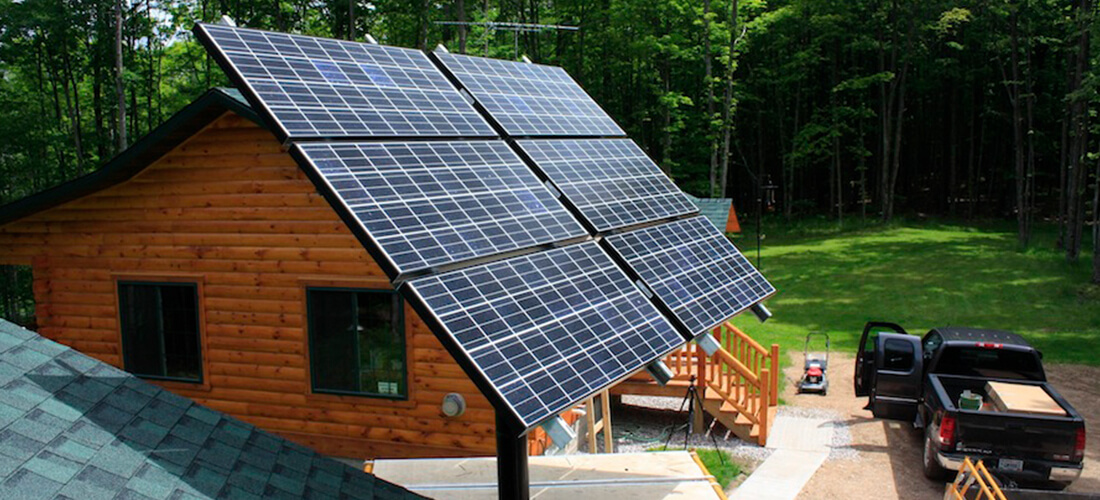As global awareness of environmental issues increases, off grid energy solutions are gaining popularity. These systems offer a sustainable and reliable alternative to traditional energy sources, providing power in remote locations without relying on centralized grids. This article explores the various aspects of off grid energy solutions, their benefits, and their role in creating a sustainable future.
What are Off Grid Energy Solutions?
Off grid energy solutions refer to energy systems that operate independently of the traditional electrical grid. These systems are particularly beneficial in remote or rural areas where grid infrastructure is unavailable or unreliable. By utilizing renewable energy sources like solar, wind, and hydro, off grid systems provide a sustainable and self-sufficient energy supply.
The Components of Off Grid Systems
An off grid energy system typically includes several key components:
- Solar Panels: Convert sunlight into electricity.
- Wind Turbines: Harness wind energy to generate power.
- Hydro Turbines: Utilize flowing water to produce electricity.
- Batteries: Store generated energy for use when renewable sources are not producing power.
- Inverters: Convert stored DC power from batteries into AC power for household use.
Benefits of Off Grid Energy Solutions
1. Sustainability
Off grid systems primarily rely on renewable energy sources, reducing the carbon footprint and promoting environmental sustainability. Solar panels and wind turbines produce energy without emitting greenhouse gases, making them a clean alternative to fossil fuels.
2. Energy Independence
One of the most significant advantages of off grid energy solutions is energy independence. Users are not subject to power outages or rising electricity costs associated with traditional grids. This independence ensures a reliable power supply, especially in remote areas.
3. Cost Savings
Although the initial investment in off grid systems can be high, long-term savings are substantial. Users save on energy bills and avoid the costs associated with extending grid infrastructure to remote locations. Additionally, renewable energy sources often have lower maintenance costs compared to traditional power plants.
4. Versatility
Off grid systems are versatile and can be tailored to meet specific energy needs. Whether for a small cabin in the woods or a large agricultural operation, these systems can be scaled accordingly.
Popular Off Grid Energy Technologies
Solar Power
Solar power is the most common off grid energy solution. Solar panels are installed to capture sunlight and convert it into electricity. Advances in solar technology have made these panels more efficient and affordable, making solar power a viable option for many off grid applications.
Wind Power
Wind turbines are another effective off grid energy solution. Suitable for areas with consistent wind speeds, these turbines generate electricity by harnessing wind energy. Wind power can be used alone or in combination with solar power to ensure a continuous energy supply.
Hydro Power
Hydro power utilizes the kinetic energy of flowing water to generate electricity. This solution is ideal for locations near rivers or streams. Small-scale hydro systems can provide a significant amount of power without the need for large dams or reservoirs.
Challenges and Solutions
Initial Costs
The initial setup cost for off grid systems can be high. However, financial incentives and rebates from governments can offset these costs. Additionally, the long-term savings on energy bills and maintenance make these systems cost-effective over time.
Energy Storage
One of the main challenges of off grid energy solutions is energy storage. Solar and wind power are intermittent sources, meaning they do not produce energy consistently. Batteries are crucial for storing excess energy generated during peak production times. Advances in battery technology are making storage solutions more efficient and affordable.
Maintenance
Off grid systems require regular maintenance to ensure optimal performance. Solar panels need cleaning, wind turbines need inspection, and batteries need monitoring. However, with proper maintenance, these systems can provide reliable power for many years.
The Future of Off Grid Energy Solutions
As technology advances, off grid energy solutions are becoming more efficient and accessible. Innovations in solar panel efficiency, wind turbine design, and battery storage are driving the adoption of these systems. Additionally, the growing concern for environmental sustainability is pushing both individuals and businesses to consider off grid solutions.
Government Support and Incentives
Governments worldwide are recognizing the importance of off grid energy solutions in achieving sustainability goals. Many countries offer incentives such as tax credits, grants, and rebates to encourage the adoption of renewable energy systems. These incentives make off grid solutions more affordable and attractive to a broader audience.
Real-Life Applications
Residential
Homeowners in remote areas are increasingly turning to off grid energy solutions to power their homes. Solar panels combined with battery storage provide a reliable and sustainable energy source. These systems can be customized to meet the specific energy needs of each household.
Agricultural
Farmers and agricultural operations benefit greatly from off grid energy solutions. Solar and wind power can run irrigation systems, machinery, and other essential equipment. By reducing reliance on diesel generators and grid electricity, farmers can save money and reduce their environmental impact.
Disaster Relief
Off grid energy solutions play a crucial role in disaster relief efforts. In the aftermath of natural disasters, traditional grid infrastructure is often damaged or destroyed. Portable solar panels and battery systems provide essential power for emergency services, medical facilities, and communication networks.
Conclusion
Off grid energy solutions offer a sustainable, reliable, and cost-effective alternative to traditional energy sources. By harnessing renewable energy, these systems provide power independence and contribute to environmental conservation. As technology continues to advance, off grid solutions will become more efficient and accessible, paving the way for a sustainable future.
Investing in off grid energy solutions is not just a financial decision; it’s a commitment to a greener, more sustainable planet. Whether for residential, agricultural, or emergency use, these systems represent the future of energy. By embracing off grid technologies, we can reduce our carbon footprint, ensure energy security, and contribute to a healthier environment for generations to come.
